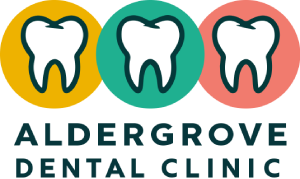Is Periodontal Treatment Painful?

The term periodontal treatment refers to a variety of methods and interventions used to identify, treat, and manage conditions that impact the gums, alveolar bone, and periodontal ligament, which support the teeth. To ensure the long-term stability and function of the teeth, the major goal of periodontal treatment in West Edmonton is to restore and preserve the health of these structures.
Depending on the severity of the disease, periodontal therapy usually entails a combination of non-surgical and surgical techniques. Professional tooth cleaning to eliminate plaque and tartar, as well as scaling and root planing to thoroughly clean the root surfaces and encourage gum reattachment, are non-surgical therapies. For more complex situations, surgery may be necessary, which may entail methods like flap surgery and bone grafting to replace lost bone and restore damaged tissues.
Along with these therapeutic measures, periodontal therapy frequently entails counseling patients on proper dental hygiene techniques, dietary changes, and routine follow-up visits to track progress and guarantee the continuous maintenance of periodontal health.
Does Periodontal Treatment Hurt?
Although periodontal therapy can sometimes make patients feel sensitive or uncomfortable, they normally tolerate it well. The degree of discomfort felt can differ depending on a number of variables, including the extent of the periodontal disease, the particular procedures involved, and personal pain tolerance.
Some patients may feel a little discomfort or sensitivity during non-surgical procedures like professional teeth cleaning, scaling, and root planning. Any potential pain or discomfort during these operations can be minimized with the aid of local anesthetic or numbing gels. The gums may temporarily feel sensitive or irritated after the procedure, but this should pass within a few days.
The level of discomfort during surgical procedures like flap surgery or bone grafting may be higher. To guarantee the patient’s comfort during these treatments, local anesthetic or other types of sedation are frequently employed. Patients may suffer some discomfort, edema, or sensitivity in the surgically treated area afterward. Your dentist in West Edmonton or an expert periodontist may prescribe pain medication and give post-operative instructions to help control any discomfort and encourage healing.
Any worries or discomfort you may experience should be discussed with your dentist prior to undergoing periodontal treatment near you. They can ensure that your treatment is as comfortable as possible by offering the proper direction and pain management alternatives.
How to Minimize Pain After Gum Treatment
- Follow the directions on any pain medicine that your dentist or periodontist has recommended. This can aid in efficiently managing discomfort and pain following therapy.
- Applying ice packs will help reduce swelling and numb the region, offering some relief. Ice packs should be applied to the exterior of your face, close to the treated area. Use the ice packs intermittently for about 15 minutes at a time.
- Ibuprofen and acetaminophen are two over-the-counter medications that can aid with pain relief and inflammation reduction. If you have any questions or special medical conditions, talk to your dentist near you or pharmacist about the recommended dosage.
- Several times a day, especially after meals, rinse your mouth gently with a solution made by combining a teaspoon of salt with a glass of warm water. Saltwater rinses can ease gum discomfort and speed up recovery.
- For the first few days after treatment, stay away from hot or spicy foods and opt instead for soft, cool, and bland options. Foods that are hot or spicy can sting the gums that have been treated and make them feel worse.
- Even after your treatment, it’s important to maintain good dental hygiene. To prevent irritability, use caution when flossing and brushing the area that has been treated. Your dentist or periodontist might suggest a particular mouthwash or give detailed instructions for aftercare.
- Attend your planned follow-up appointments with your dentist or periodontist. Keep your follow-up appointments. They will keep track of your recovery, solve any issues, and offer more advice as required.
Do remember that discomfort and pain following gum surgery are typically transient and should eventually subside as your gums heal. However, you should get in touch with your dental expert for additional testing if you feel intense or continuous pain, significant bleeding, or any other strange symptoms.
Schedule an Appointment Today
Do not be reluctant to contact us if you have any inquiries. We’re here to support you and your gums, and we’ll do everything in our power to make sure you’re at ease throughout your session.
Call, email, or come to see our amazing team here at Aldergrove Dental Clinic to get started. We’ll be with you every step of the way.
